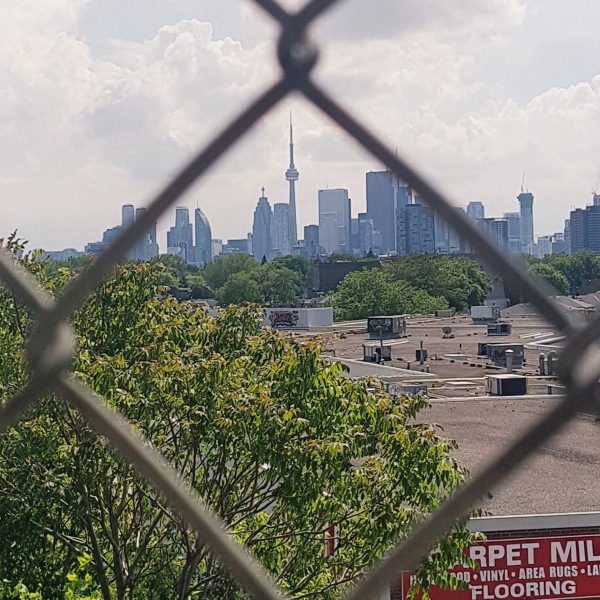Monthly Newsletter: April 2006
This month I’d like to present our “top ten” strategies to enhance your chances for success when purchasing an income property. This applies to both owner-occupied income properties as well as properties for investment only. The principles also work in any given real estate market or geography. By following these few simple rules you can limit your risk and get closer to buying the right property that meets your specific needs
This list was originally presented in the Toronto Star by a shrewd investor named Andrew Vitch, who is active in the Niagara area. I agree with all ten points whole-heartedly and I can honestly say that this is one of the smartest articles on income properties that I have ever come across. Rather than come up with my own version of a top ten, I have taken his list and added my own thoughts afterwards. If you follow these ten simple rules then it is unlikely (though not impossible) that you will make a bad purchase decision.
The property should be visually appealing or have the potential to be appealing with a few cosmetic improvements. The test: “Would you want your 20 –year-old daughter to live there?” This is important because when it comes time to sell, the curb appeal of your property is the first impression that is made when one comes to take a look. Generally, if a house looks good on the outside, it will show well on the inside.
The property should be close to public transit or have its own parking. It should be located near other apartments as well. There are some good neighbourhoods where a rental doesn’t belong. If you put student housing among single-family homes, for example you can anticipate opposition from your neighbours and calls to city hall.
The property should be zoned for the number of rental units you have and the construction should be done with a permit. Otherwise, the bank will do its due diligence and find out you don’t have a legal apartment, which may bring your financing into question. Remember to always let your lender and your insurer know if you are going to be living in the property but also renting a portion of it out.
The property’s major systems should be working properly. Put a condition in your offer that you want a building inspection. Does the heating system use a boiler or forced-air gas? Doe the plumbing use copper or galvanized pipes? Is there aluminum or knob-and-tube wiring, which could pose a safety problem? How’s the drainage in the basement? These are things you have to know. Make sure that key parts of the heating or electrical systems aren’t sitting in a tenant’s apartment. That way, you won’t have to knock on doors each time you have to do repairs. Also, check for termites, knob & tube wiring and other potential surprises that may affect the property. If you have to buy a property “firm” because of market competition, try and do a preinspection. If not, please be very careful.
The property should have a hydro inspection and, if possible, a fire safety retrofit review. Ask your real estate agent about them when visiting the property. If you read last month’s article you know that most properties are not fire retrofitted but it’s still not a bad idea to get a list of everything that needs to be done in order to ensure that you meet fire code compliance.
Try to meet the tenants when you visit the units. Ask them if there’s anything they don’t like about the building. This protects you from unexpected demands from the tenants after the deal closes. Also, if a tenant looks dodgy, proceed with extreme caution. Some tenants try to bully landlords and not pay their rent. If I go into a rental suite and it’s a real dump then I almost insist that you get a look at the occupant(s). The last thing you want to have happen is that a tenant makes your life difficult. This negates all the positive aspects of being a landlord.
Crunch the numbers to make sure you’re getting a good return on your investment. Divide the building’s net operating income by its purchase price. The result is “the cap rate”. Today a cap rate of five to seven is the norm in Toronto. Ownership costs, such as hydro, gas, water, insurance and property taxes have been going up more quickly than rents. Interest rates have started rising, too. If you buy at an 6 percent cap rate, the property had better be completely improved. You don’t want to take more money out of your pocket to improve it.
If possible, ask the seller to participate in the financing. Use only borrowed money, with a line of credit on your own home for the down payment. This isn’t always possible but in a good borrowing climate this makes a lot of sense.
Try to buy one property a year. You’ll see the second mortgage being paid off in four to six years and you’ll have a bonus monthly income each year. Sometimes this isn’t possible. Don’t buy though, just for the sake of buying. Please meet sure that it’s a solid invesment or that it meets your future needs. Also, be patient. There are a lot of duds out there so make sure that you are careful to wait for the right property. But when it turns up, don’t mess around. If you hesitate or over-complicate things you are likely to lose the property to someone else.
Bring along someone with experience when visiting properties. It is smarter to do business with a company like Plex Realty who deals with these kinds of properties everyday – not just once in a blue moon. It is important that you get accurate and current investment market knowledge.
When the time comes to make a purchase or sale decision, following these simple rules can make the process go much smoother. I find that most of our clients educate themselves online to prepare themselves as much as possible. Our website at www.plex.ca is loaded with a lot more useful information. I personally update the features properties every week so that you are seeing the best of what’s still available. Of course, there is still no substitute for getting out there and seeing as many properties as possible. This is the best way to stay on the cutting edge of the market.
Next month I will do a wrap-up on MLS income property activity so far this year as well look at some other Canadian markets to compare how well Toronto is doing in relation to other large cities.
Enjoy the warm weather everyone – hopefully the worst of the cold is past us.
P.A.



